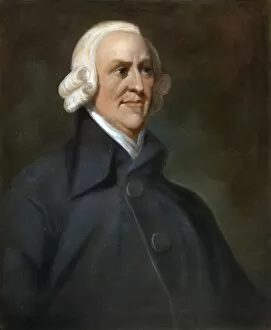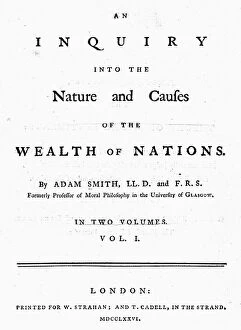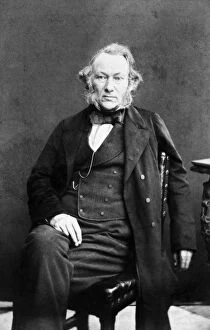Laissez Faire Collection
"Laissez-faire: The Economic Philosophy of Adam Smith and Richard Cobden" In the realm of economics, few concepts have had as lasting an impact as "laissez-faire
All Professionally Made to Order for Quick Shipping
"Laissez-faire: The Economic Philosophy of Adam Smith and Richard Cobden" In the realm of economics, few concepts have had as lasting an impact as "laissez-faire. " Coined by French economists in the 18th century, this term encapsulates a philosophy that advocates for minimal government intervention in economic affairs. At the forefront of this movement was Scottish economist Adam Smith, whose groundbreaking work "The Wealth of Nations" laid the foundation for laissez-faire principles. Published in 1776, Smith's book argued that individuals pursuing their own self-interest would ultimately lead to societal prosperity. His ideas revolutionized economic thought and continue to shape policy discussions today. Smith's influence extended beyond his written works; his image became iconic through engravings and paintings by artists like James Tassie and Charles Smith. These depictions captured his intellectual prowess and cemented him as a prominent figure in economic history. Another advocate for laissez-faire was English politician Richard Cobden. Living during the 19th century, Cobden championed free trade policies and believed that governments should refrain from interfering with international commerce. His contributions were recognized through various artistic mediums such as canvases, carte-de-visites, mezzotints, and steel engravings. Laissez-faire found particular favor among American business leaders during President Calvin Coolidge's tenure in the 1920s. Cartoonist D. R Fitzpatrick depicted this popularity through his famous illustration titled "The Cash Register Chorus, " highlighting how Coolidge's hands-off approach resonated with those seeking entrepreneurial freedom. Today, debates surrounding laissez-faire continue to shape economic discourse worldwide. While some argue that it fosters inequality or neglects social welfare concerns, others maintain that it promotes innovation and individual liberty. Regardless of one's stance on this philosophy, there is no denying its enduring legacy thanks to influential thinkers like Adam Smith and Richard Cobden.








